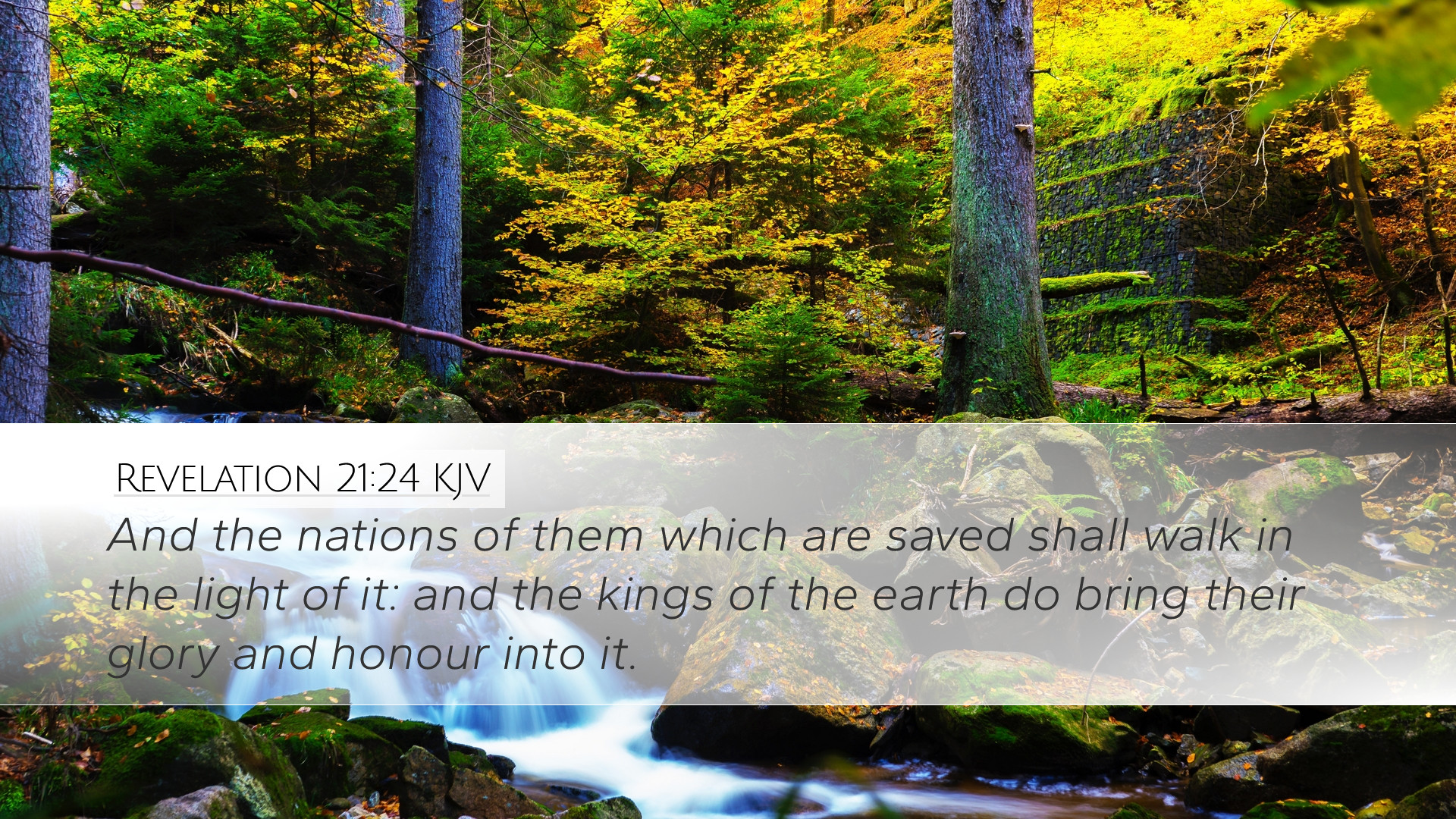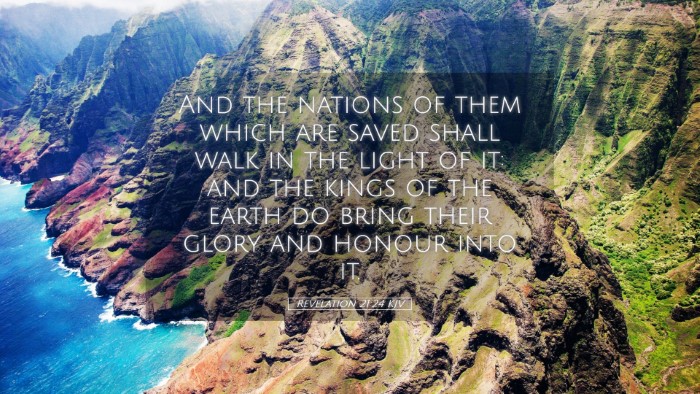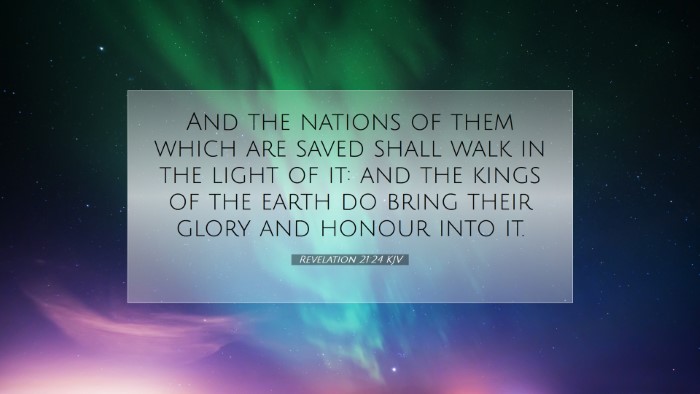Commentary on Revelation 21:24
Text of Revelation 21:24:
"And the nations of them which are saved shall walk in the light of it: and the kings of the earth do bring their glory and honour into it."
Introduction
The final chapters of the Book of Revelation paint a glorious picture of the new heaven and the new earth, culminating in the New Jerusalem. Revelation 21:24 specifically focuses on the nations and kings who will honor this new creation, rich with theological significance and hope. Commentaries from notable theologians such as Matthew Henry, Albert Barnes, and Adam Clarke offer profound insights into the implications of this verse.
Key Themes and Insights
1. The Nations of the Saved
Matthew Henry emphasizes the inclusion of the nations in the realm of salvation, suggesting that the New Jerusalem will not merely be a Jewish or Christian inheritance but a universal one. The phrase "the nations of them which are saved" reflects God's redemptive plan that transcends ethnic and national boundaries.
Albert Barnes expands on this thought, noting that the participation of various nations in the light of God's glory signifies the unity and diversity of humanity in worship. This collective worship underscores the idea that salvation is meant for all people, inviting a multitude of voices and cultures into the fold.
2. Walking in the Light
Walking in the light symbolizes a life transformed by God's presence. Adam Clarke notes that light in biblical terms often signifies truth, holiness, and the divine presence. In this context, walking indicates a constant, active engagement with the light of Christ, which leads to enlightenment and righteous living.
This notion of light also alludes to the absence of darkness, representing a new order where sin, suffering, and death have been vanquished. This new lifestyle invites believers to reflect on their own lives and how closely they emulate this walk of light in the present world.
3. The Glory and Honour of Kings
The second half of the verse highlights the role of the kings of the earth bringing their glory and honour into the New Jerusalem. Matthew Henry reflects on the idea that all earthly authority will be subservient to God's ultimate sovereignty. The kings who once ruled will now acknowledge the supremacy of God, bringing forth their best as an act of worship and honor.
Albert Barnes adds that this act of bringing glory signifies their acknowledgment of God's authority and the desire to contribute to His kingdom. The implication is that in eternity, earthly achievements and honors take on a new dimension within the context of divine glory.
4. Theological Implications
This verse invites theologians and scholars to consider the implications of the communal aspect of salvation. Adam Clarke notes that the gathering of nations and kings points towards the eschatological fulfillment of God's promise to Abraham—that all nations would be blessed through him (Genesis 12:3). Thus, Revelation 21:24 serves as a culmination of God's redemptive plan from creation through to its consummation.
Additionally, the acknowledgment of earthly rulers reflects a final reconciliation between God and humanity, highlighting that every authority, power, or glory on earth must ultimately bow to Christ the King. This presents a powerful moment of humility and recognition for all who have occupied positions of power throughout history.
Application and Reflection
For pastors and leaders, this passage serves as a reminder of the inclusivity of the Gospel and the hope of a unified future in God's presence. It encourages a global vision of ministry that transcends cultural and national boundaries, aiming for a kingdom that reflects the glory of God through diverse voices.
Bible students and scholars are invited to explore how this passage informs current theological debates regarding the nature of salvation, the role of the church, and the promise of hope for all nations. It compels a deeper understanding of what it means to 'walk in the light' and the profound implications this has for daily Christian living.
Conclusion
Revelation 21:24 encapsulates the hope of eternal life and the communal aspect of salvation, emphasizing both the diversity and unity of God's people. It underscores that the glory of heaven will be enriched by the contributions of all nations and kings, pointing to a future where every person is drawn into the divine light, ultimately unifying all in worship before the King of Kings.


